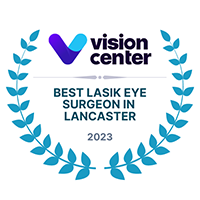Thinking about getting LASIK? It can reduce or get rid of your need to wear glasses or use visual aids.
That is the case with most LASIK patients. But some patients still need reading glasses.
LASIK corrects refractive errors. These are vision errors caused by a misshapen cornea.
When your cornea is misshapen, light cannot be filtered or distributed the right way. This causes the most common vision problems.
This includes nearsightedness, farsightedness, and astigmatism. LASIK reshapes your cornea.
This corrects refractive errors.
Most LASIK patients experience their vision corrected to at least 20/40. Many patients have their vision corrected to 20/20.
LASIK corrects refractive vision problems. Patients who have vision problems that are not refractive errors may still need reading glasses.
LASIK does not prevent future eye diseases and conditions. This can include presbyopia, glaucoma, macular degeneration, and cataracts.
These eye diseases and conditions can impair your vision. This is true even after you undergo LASIK. Keep reading to find out if you’ll need reading glasses after LASIK!
Presbyopia
Presbyopia is not a refractive vision problem. It’s caused by a loss of elasticity in the lens of your eye.
This makes it difficult for the lens to flex and bend, causing problems when the lens tries to focus. If you try to look at things that are at different distances, you may not be able to see them.
The LASIK vision correction level is less for patients with presbyopia. For most patients with presbyopia, the condition comes on later in life, in their mid-forties or older.
This means that you can develop presbyopia after LASIK surgery. Your LASIK corrected vision will still be intact, but you may need reading glasses. Some presbyopia patients find that they need prescription glasses with a low prescription.
Aging Eyes
LASIK surgery reshapes your cornea. This corrects your refractive errors.
The reshaping of your cornea is permanent. But your cornea is only one part of your eye that affects your vision.
Your eyes change as you get older. Aging eyes can lose their elasticity.
They can develop cataracts, glaucoma, or other eye diseases and conditions. These eye diseases and conditions affect your vision. LASIK vision correction is permanent, but it does not prevent future vision problems.
Eye problems that come on with aging can limit your vision. This is true even after LASIK surgery.
Some patients need reading glasses after LASIK. Other patients need prescription glasses. When it comes to treating cataracts or glaucoma, surgery is the best option.
LASIK Consultation
The first step in the LASIK surgery process is a consultation. During your consultation, your eye doctor will test and study your eyes.
They will also discuss your family history of eye conditions. The results of these tests and discussions will determine if you are a good candidate for LASIK.
Your eye doctor will discuss life after LASIK with you. This includes the possibility of future eye diseases and conditions. This is largely based on your personal medical history and test results.
Ready to know more about LASIK? Wondering if it’s right for you?
The first step is a LASIK consultation. Schedule yours today with Chesen Laser Eye Center in West Reading, PA!






